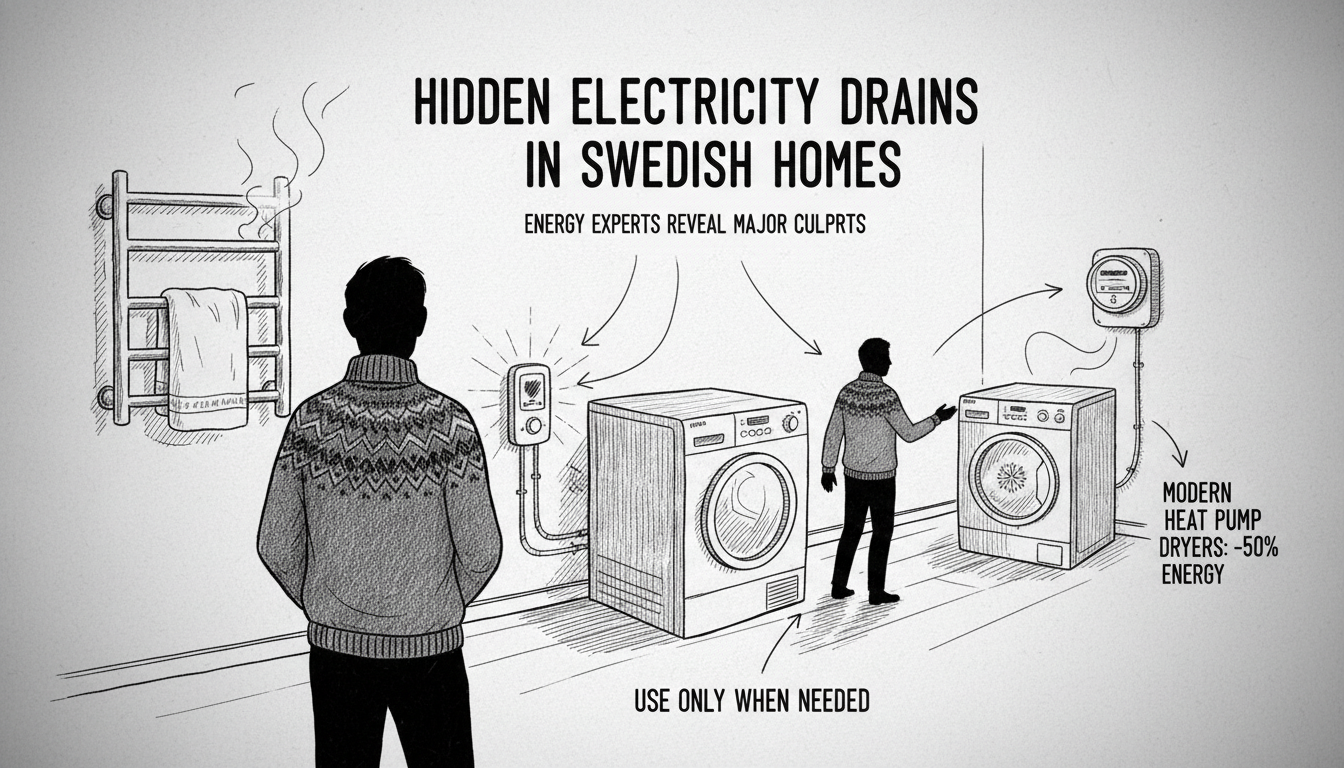Swedish households contain numerous hidden electricity drains that significantly impact energy bills and environmental footprints. Climate advisor Alexander Gavrin from Gothenburg's environmental department identifies the worst offenders in typical homes. Many residents remain unaware of these constant energy consumers that waste kilowatt-hours daily.
Gavrin highlights heated towel rails as major electricity consumers. A constantly running towel heater can easily consume 600 kilowatt-hours annually. This represents substantial unnecessary energy use that accumulates over time. Two other significant energy drains include underfloor heating systems and older model dryers.
Household energy efficiency improves dramatically when appliances operate only when needed. Gavrin suggests using equipment in reasonable ways rather than maintaining constant operation. This approach reduces both electricity consumption and utility costs substantially.
Dryer technology shows particularly dramatic differences between models. Modern heat pump dryers consume over 50 percent less energy than older variants. This translates directly to lower electricity bills for households making the upgrade. The initial investment in efficient appliances pays back through reduced operating costs.
Sweden's cold climate creates unique energy challenges for homeowners. The tendency to keep heating systems running constantly contributes to higher than necessary consumption. Many households could achieve meaningful savings through more intentional equipment use.
Energy efficiency represents a crucial component of Sweden's environmental goals. Household electricity consumption accounts for significant portions of national energy use. Reducing waste through smarter appliance management supports broader sustainability objectives.
International readers in similar climates can apply these insights to their own homes. The principles of identifying hidden energy drains and using equipment judiciously translate across regions. Understanding which appliances consume disproportionate electricity helps prioritize upgrades and behavior changes.
Gothenburg's climate advisors continue educating residents about practical energy savings. Their recommendations focus on achievable changes rather than major lifestyle alterations. Simple adjustments to appliance use patterns can yield noticeable financial and environmental benefits.

